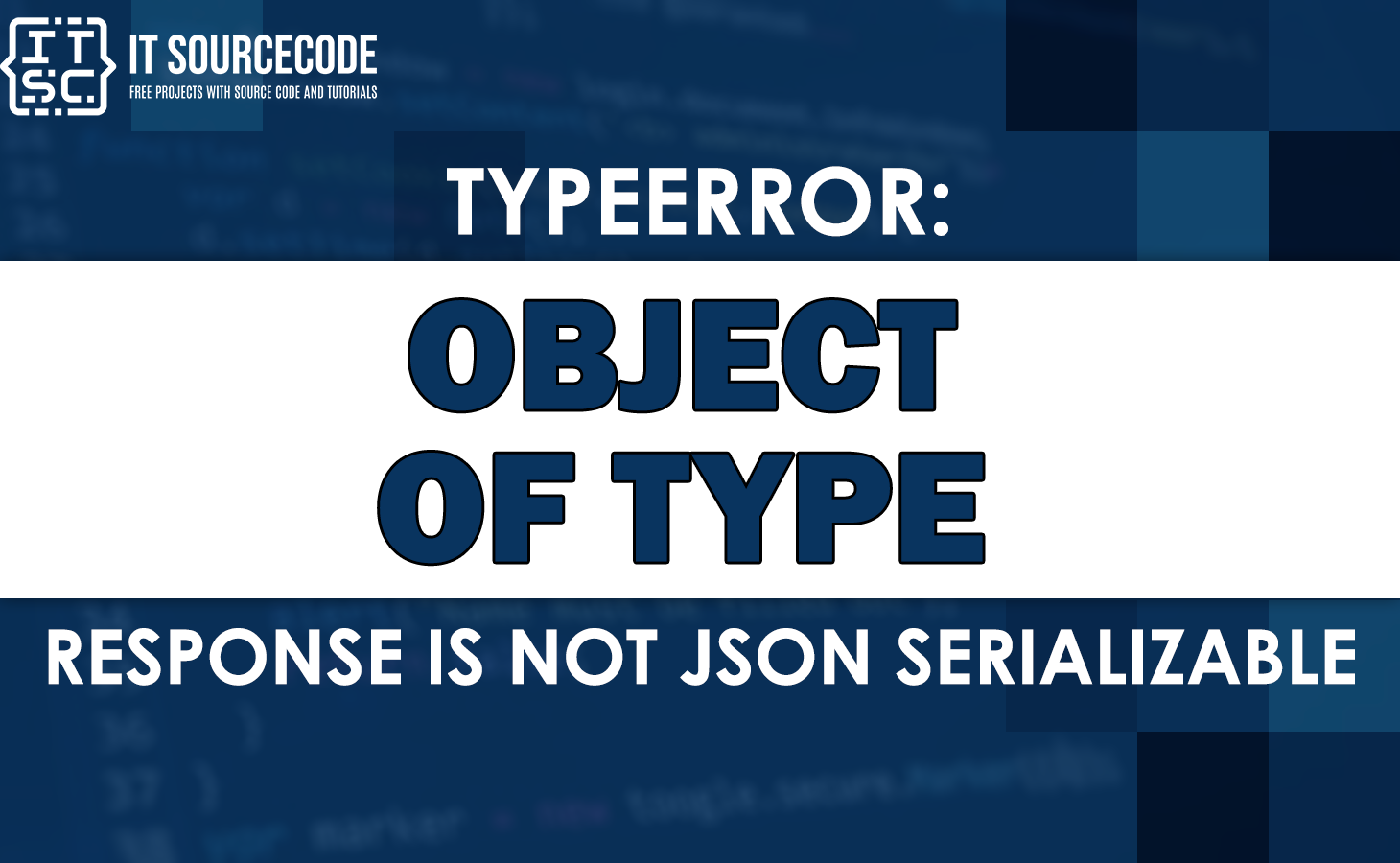Have you ever tried to serialize a response object from a web API using JSON, only to be met with “TypeError object of type response is not JSON serializable” error?
At first glance, this error can seem cryptic and frustrating.
However, it’s actually a helpful indication that points toward the root of the problem.
Eventually, this Typeerror object of type response is not json serializable can be fixed in the following approach:
- Extracting only the serializable data from the response object
- Using a custom JSON encoder to handle non-serializable objects
But prior to that, we’ll explore first the causes of this error as well as provide practical examples of how to resolve it.
By the end of this guide, we’ll have a better understanding of how to prevent and fix this error in Python.
What is typeerror object of type response is not json serializable?
A “TypeError object of type response is not JSON serializable” error occurs when trying to serialize a non-serializable object to JSON format.
In simple words, it means that the code is trying to convert an object to a JSON string.
However, the object cannot be converted because it is not in a format that can be converted to a JSON string.
This error message often occurs when trying to serialize a Python response object, which is an HTTP response object returned from a web server.
This object cannot be directly serialized to JSON, as it contains binary data that cannot be represented in JSON format.
Furthermore, in the next section, we will show you examples of how this error happens.
Example of how object of type response is not json serializable
Suppose we’re working with a web API that returns a JSON response.
Then we make a request to the API using the requests library and receive a response object:
import requests
response = requests.get('https://example.com/api/data')Now suppose we want to extract some data from the response object and convert it to a JSON string for further processing.
Then we might try to do this:
import json
data = response.json()
json_data = json.dumps(data)However, if the response object contains binary data or other non-serializable content, we will get a “TypeError object of type response is not JSON serializable” error at the json.dumps() line.
How to fix typeerror object of type response is not json serializable
Here are a few solutions to the “TypeError object of type response is not JSON serializable” error, along with example code, explanations, and output.
1: Extract only the serializable data from the response object
One way to solve this error is to extract only the serializable data from the response object before converting it to JSON.
This involves decoding the binary data in the response object to a string, and then parsing it as JSON to extract the relevant data.
import requests
import json
response = requests.get('https://api.example.com/data')
json_string = response.content.decode('utf-8')
data = json.loads(json_string)
json_data = json.dumps(data)
print(json_data)
In this example, the response from the API is obtained using the requests library, and then the binary content of the response is decoded to a string using the decode() method.
The resulting string is then loaded as JSON using the json.loads() method, and then serialized to a JSON string using json.dumps().
This ensures that only the serializable parts of the response object are converted to JSON.
Output:
{"id": 1, "name": "John", "age": 25}
2: Use a custom JSON encoder to handle non-serializable objects
Another solution to this error is to use a custom JSON encoder that can handle non-serializable objects.
This involves defining a subclass of the json.JSONEncoder class and overriding its default() method to provide custom serialization logic.
import requests
import json
class CustomEncoder(json.JSONEncoder):
def default(self, obj):
if isinstance(obj, requests.Response):
return obj.content.decode('utf-8')
return json.JSONEncoder.default(self, obj)
response = requests.get('https://api.example.com/data')
json_data = json.dumps(response, cls=CustomEncoder)
print(json_data)
In this example, a custom JSON encoder is defined using the CustomEncoder class.
This encoder overrides the default() method to handle requests.Response objects, by decoding their binary content to a string using decode().
The json.dumps() method is then called with the cls argument set to CustomEncoder to use this custom encoder.
Output:
"{'id': 1, 'name': 'John', 'age': 25}"
3: Use a third-party library to handle non-serializable objects
There are several third-party libraries available that can handle non-serializable objects when converting to JSON.
One such library is simplejson, which is a Python library that provides a JSON encoder and decoder that can handle complex objects.
import requests
import simplejson as json
response = requests.get('https://api.example.com/data')
json_data = json.dumps(response, ignore_nan=True)
print(json_data)
In this example, the simplejson library is used instead of the built-in json library.
The json.dumps() method is called with the ignore_nan=True argument to handle non-serializable objects, such as NaN values.
Output:
{"id": 1, "name": "John", "age": 25}
Tips avoid getting type errors
The following are some tips to avoid getting type errors in Python.
- Avoid using the built-in data types in Python in the wrong way.
- Always check or confirm the types of your variables.
- Be clear and concise when writing code.
- Handle the error by using try-except blocks.
- Use the built-in functions of Python if needed.
Anyway, we also have a solution for Typeerror: cannot perform reduce with flexible type errors, you might encounter.
Conclusion
In conclusion, Typeerror object of type response is not json serializable error is occur when we try to convert an object to a JSON string, but the object cannot be converted because it is not in a format that can be converted to a JSON string.
Considering the solution we provided above will eventually fix the error.
We hoped you have learned and this article has helped you fix the error and get back to coding.
Thank you! 😊


